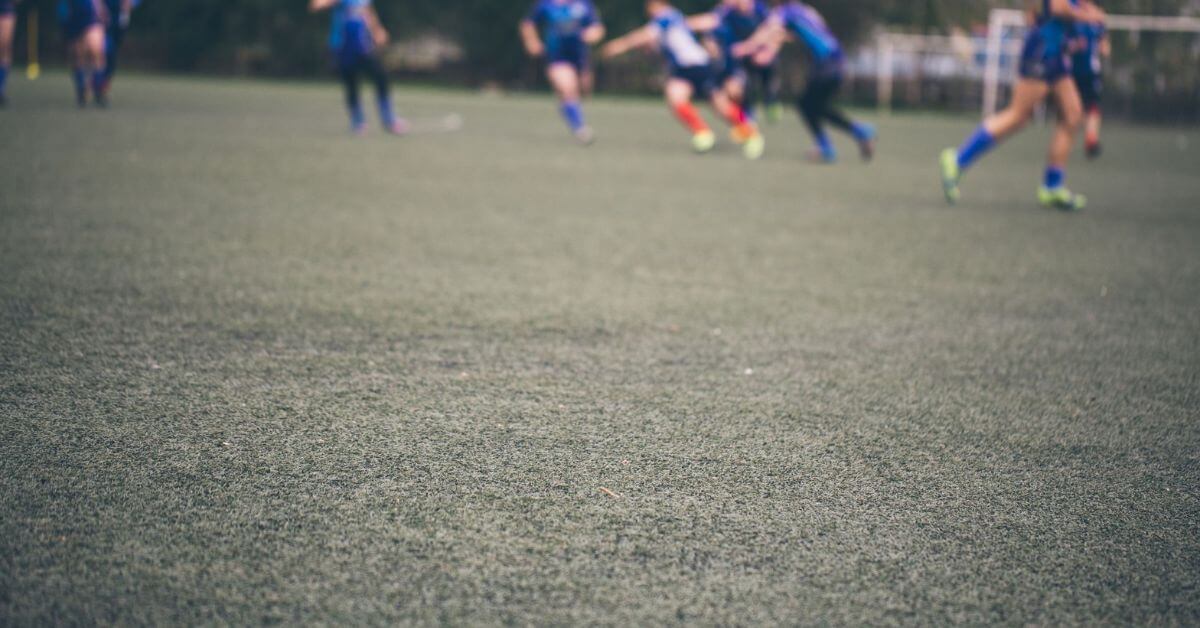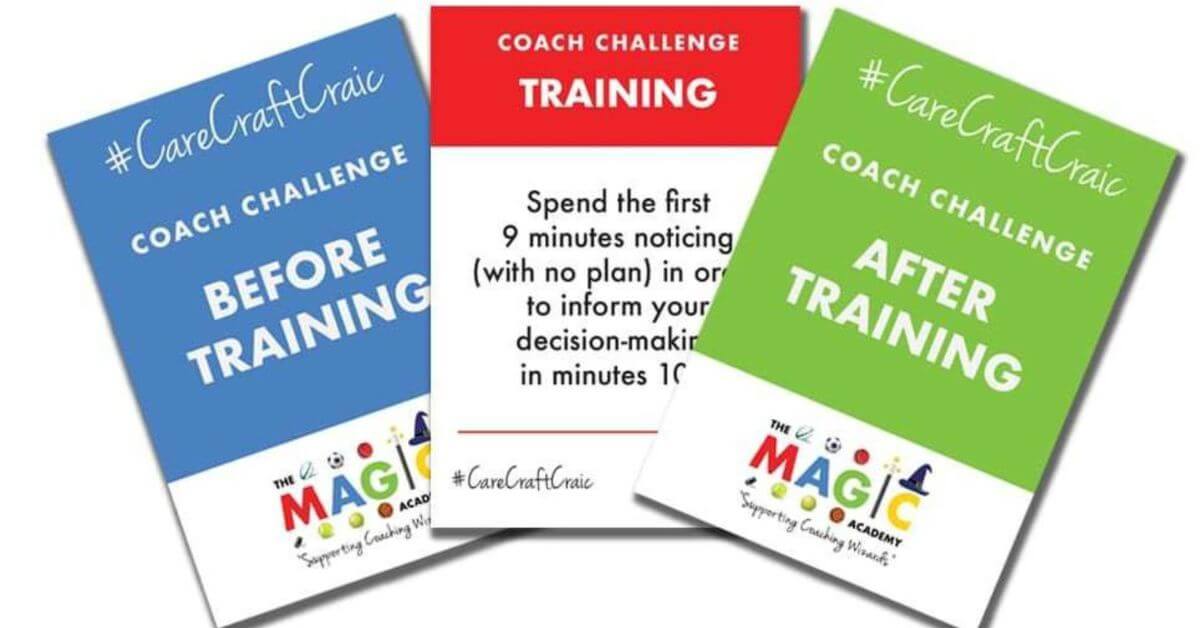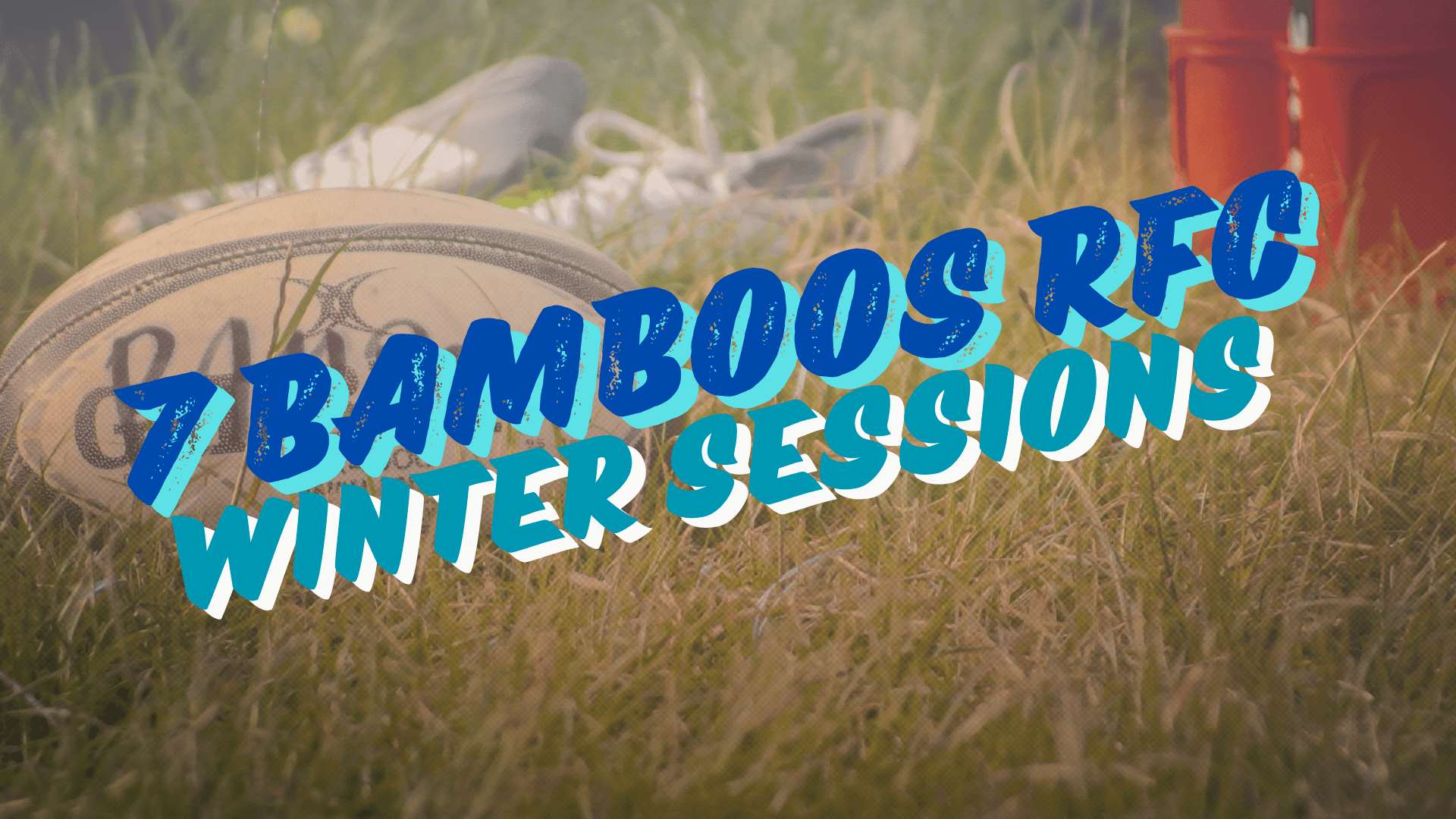Get ready to kick off winter with 7 Bamboos RFC!…

Are you having a laugh? How to make coaching more fun?
Coaching is 90% attitude and 10% technique. (Unknown)
Imagine yourself back a few years (maybe even more, depending on your age) and try to recall your PE classes. How much fun were they? Did you love them or loathe them? Were you looking forward to PE or were you even frightened to take part?
Everyone has probably slightly different memories of PE in school, and while for many sports were a welcoming alternative to an hour of maths or history, a lot would argue it wasn’t “pure fun”.
Now think about club sports. In a lot of clubs, the coaching is often “serious” business, and the focus is on the improvement of technical aspects:
The right way to hold the racket in tennis, pass the ball in rugby or shoot in basketball.
While you can spend a lot of time on the little, tiny technical details, it’s not that much fun, and worst of all we forget that it’s a game.
So why not just “play the actual game” in training and emphasise “fun”?

Game and Learner first!
I studied sports coaching on a bachelor’s and master’s level, and we had to study a lot of different coaching concepts. But one theory struck out most during my Uni-years: “Teaching Games for Understanding” (also called Game Sense).
The concept was first developed by Thorpe, Bunker & Almond in 1986.
The idea is simple: The whole session is based on games and the “learner”. The coach’s role is to ask questions instead of shouting orders and instructions.
In simple terms, if the “game” which was often just the highlight at the end of the session becomes suddenly the central element, your session could be a lot more enjoyable.
But let’s dig a bit deeper and have a look at why this approach is so promising:
The diagram shows in a few steps the theory behind TGFU.
The very basic root of the idea is, to begin with, a game that is modified around the needs of the learner.
Follow the model around anti-clockwise and you’ll see that the athlete will start to develop very vital skills by asking themselves important questions.
Because the game is much more appreciated than just an isolated drill, tactical awareness will be developed following making valuable decisions.
Here is where the coach steps in and asks questions. Questions about those decisions that were made.
Questions like, what are you doing? When will you do it? How do you do that?
Reaching this point, the session becomes more skills focussed, because now the player together with the coach are investigating what skills are required to succeed in the game.
Importantly, the coach asks those questions after the players appreciate why those skills are important to develop.
As the coach and learner worked together to analyse these elements and figure out a plan on how to perform better, as a result, the learner goes back into the game and performs better.
TGFU is a great concept to make your sessions more engaging, exciting, and above all more enjoyable.
Especially when you are working in amateur sports and you are very limited in time spent on the training field, this concept can get the most out of your players during the session.
Here are some other top tips to ensure that your players have a big smile on their faces next time you run the training.

Mix it up!
Chelsea coach Thomas Tuchel explained once in a presentation, that during his first role as a young coach of German Bundesliga club Mainz 05 they never had one session which was the same.
In each training, the coaches changed the size of the field, the size of the goal, the number of players on each side, and so on. This way the players had to constantly adapt to new situations and the training remained exciting.
Think about introducing round balls in rugby, play footy with rugby balls, or netball with tennis balls. The possibilities are endless, and your players will appreciate the changes.

Swap the coach
As a coach, I love to see my players taking responsibility and taking over the coaching role. Don’t get me wrong, a coach is essential and should be present, but at the end of the day, it’s the players on the pitch that need to win the game.
If they are able to step into the role of the coach, your players will become much more capable of leading the team.

Work with Coach Challenge Cards
Developed by the Magic Academy (led by Russel Earnshaw and John Fletcher), the Coach Challenge Cards are an amazing tool to make your practice a lot more engaging and fun.
The cards are divided into three categories: Before training, training, after training, game and Prime Time.
Once you selected the appropriate category pick one of the 132 cards and read the instructions out. We’ve trialed the Coach Challenge Cards before in our own sessions with the Bamboos and they are brilliant.
You can order your pack here.

Introduce external experts
People love learning new things and sometimes the most refreshing way to shake up learning is by welcoming experts from other fields.
This could be a coach from a different sport or even a professional from a completely different industry.
For example, a rowing session might be a great way to re-learn how to work as a team, or a CEO of a company could come around and talk about leadership.
Multi-disciplinary learning is a very popular way to engage students of all kinds and find new ways of skill development.

Work with video
Recording your training can be one of the most powerful ways to improve performance. You wouldn’t believe how many different things you see on the screen which you haven’t noticed while on the pitch.
Thanks to smartphones with outstanding video quality features filming the sessions these days is easy and convenient. Try it out and see how the quality of training and games will change.
Conclusion
Modern sport is often associated with a lot of seriousness, and we easily tend to forget that we all initially started playing sports for the love of the game.
To maintain this love and passion coaches should constantly review and reflect on their concepts and methods to ensure that players are still enjoying what they do.
No matter if you coach a world-class professional team or just an under-8s at your local rugby club, think about if your sessions are enjoyable and engaging.
Are you players smiling and having fun? Do they love what they do? Do they want to be there?
All these are important questions that should form the foundation of each coaching philosophy.
Never be afraid to shake things up by using concepts such as “Teaching Games for Understanding”, changing the way of the training structure, swapping the coach, introducing external experts, and working with challenge cards or video recording.
All these are little but very efficient steps to ensure your team is taking the next step to becoming a winning unit.
Find out more about the way we coach at 7 Bamboos Rugby.
For more reading on this topic, we recommend:
#tgfu #coaching #coachingwithfun #gamesense #learner





